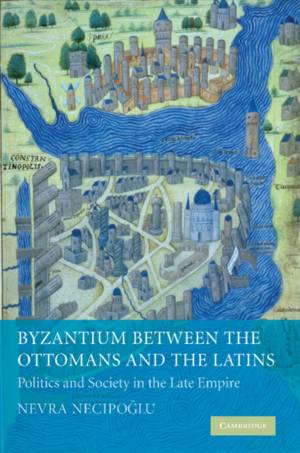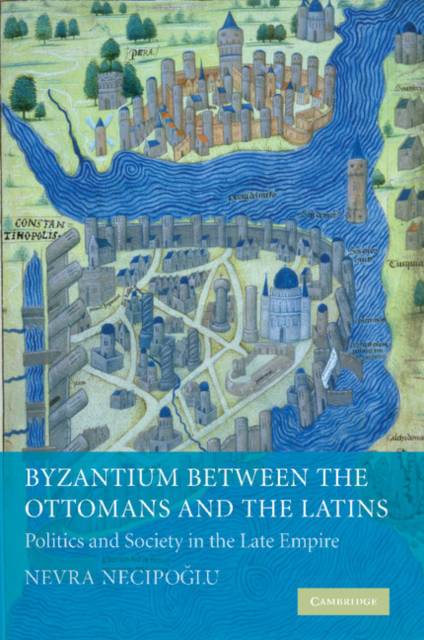
Je cadeautjes zeker op tijd in huis hebben voor de feestdagen? Kom langs in onze winkels en vind het perfecte geschenk!
- Afhalen na 1 uur in een winkel met voorraad
- Gratis thuislevering in België vanaf € 30
- Ruim aanbod met 7 miljoen producten
Je cadeautjes zeker op tijd in huis hebben voor de feestdagen? Kom langs in onze winkels en vind het perfecte geschenk!
- Afhalen na 1 uur in een winkel met voorraad
- Gratis thuislevering in België vanaf € 30
- Ruim aanbod met 7 miljoen producten
Zoeken
Byzantium Between the Ottomans and the Latins
Politics and Society in the Late Empire
Nevra Necipoglu
Paperback | Engels
€ 90,95
+ 181 punten
Uitvoering
Omschrijving
This is a detailed analysis of Byzantine political attitudes towards the Ottomans and western Europeans during the critical last century of Byzantium. The book covers three major regions of the Byzantine Empire - Thessalonike, Constantinople, and the Morea - where the political orientations of aristocrats, merchants, the urban populace, peasants, and members of ecclesiastical and monastic circles are examined against the background of social and economic conditions. Through its particular focus on the political and religious dispositions of individuals, families and social groups, the book offers an original view of late Byzantine politics and society that is not found in conventional narratives. Drawing on a wide range of Byzantine, western and Ottoman sources, it authoritatively illustrates how late Byzantium was drawn into an Ottoman system in spite of the westward-looking orientation of the majority of its ruling elite.
Specificaties
Betrokkenen
- Auteur(s):
- Uitgeverij:
Inhoud
- Aantal bladzijden:
- 374
- Taal:
- Engels
Eigenschappen
- Productcode (EAN):
- 9781107403888
- Verschijningsdatum:
- 12/01/2012
- Uitvoering:
- Paperback
- Formaat:
- Trade paperback (VS)
- Afmetingen:
- 152 mm x 229 mm
- Gewicht:
- 548 g

Alleen bij Standaard Boekhandel
+ 181 punten op je klantenkaart van Standaard Boekhandel
Beoordelingen
We publiceren alleen reviews die voldoen aan de voorwaarden voor reviews. Bekijk onze voorwaarden voor reviews.









